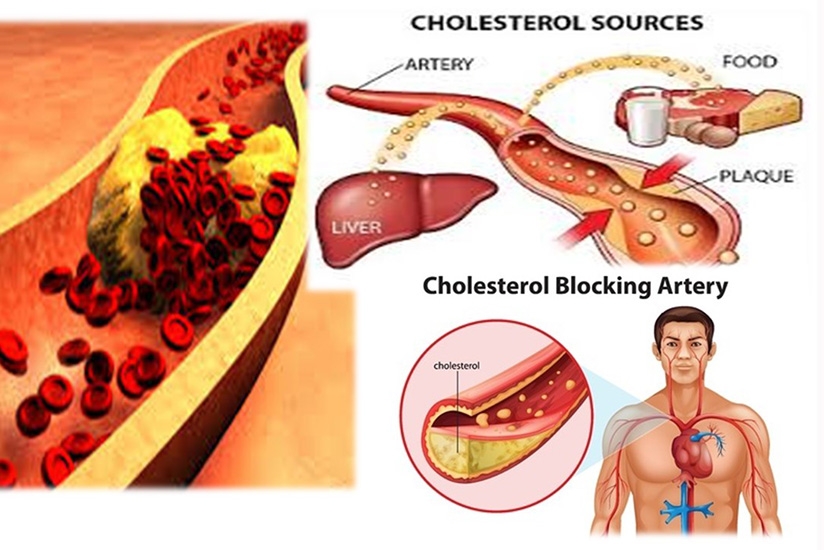Watching what you eat and exercising regularly are common statements made by medics to patients. The goal is to help people stay healthy and keep away from diseases, that most of the time come a long with the lifestyle we adopt.


Watching what you eat and exercising regularly are common statements made by medics to patients. The goal is to help people stay healthy and keep away from diseases, that most of the time come a long with the lifestyle we adopt.
One of the conditions that are relatively unknown to many that can be brought about by an unhealthy diet and less exercises is hyperlipidemia.
What’s hyperlipidemia?
According to Dr Evarste Ntaganda, the in-charge of cardiovascular diseases at Rwanda Biomedical Centre (RBC), hyperlipidemia is when there is too much cholesterol in the blood. Cholesterol is a waxy fat protein made by the liver.
Ntaganda says there are two types of cholesterol, namely, high density lipoprotein (HDL) and low density lipoprotein (LDL), the latter normally considered the bad one.
He further notes that HDL is good because it carries extra cholesterol back to the liver where it can be eliminated.
"Cholesterol is extra fat/lipids in ones blood, which most of the time can be controlled. However, it’s a common problem among people because of the lifestyle they are exposed to. What makes it worse is that most of them are unaware of the problem,” he says.
Ntaganda explains that cholesterol becomes a problem when too much low-density lipoprotein (LDL) is produced or ingested through unhealthy foods. LDL is bad because it enables excess cholesterol to build up in the blood.
"Elevated levels of non-HDL cholesterol and LDL in the blood may be a consequence of an unhealthy diet, obesity, inherited (genetic) diseases (such as LDL receptor mutations in familial hypercholesterolemia), or the presence of other diseases such as type 2 diabetes and an underactive thyroid,” he says.
According to Dr Francis Kazungu, a general practitioner in Kigali, foods that have a high level of cholesterol and saturated fat such as cheese, egg yolks, fried/processed foods, ice cream and red meat, among others, can lead to hyperlipidemia.
He says such kinds of food can raise one’s blood cholesterol level, thus putting such people at risk in developing heart diseases.
"If one is not physically active, it can lead to gaining extra weight, which is a risk to raising the cholesterol level. On the other hand, the cholesterol level can go up as one gets older,” he says.
Besides such factors, Kazungu says, hyperlipidemia can come about due to genetic factors.
Symptoms
Ntaganda says it’s hard for most people to realise that they have hyperlipidemia because it doesn’t show symptoms easily, while the ones that manifest take long to be recognised.
"Most people with this condition can’t tell that they have it in the early stages. It’s not something you can feel, but you’ll notice the effects later in life. This makes it dangerous because by the time it’s diagnosed, it could be too late,” he says.
Ntaganda says one of the commonest symptoms is high blood pressure.
"This is because cholesterol and other fats in the body can build up inside the arteries, which makes the blood vessels narrower and makes it more difficult for blood to get through.
"High blood pressure can lead to formation of a blood clot. This can cause stroke and a heart attack,” he says.
Staying away from the condition
Dr Janvier Rusizina, a general doctor at La Nouvelle Clinic in Remera, Gasabo Dostrict, says the only way one can keep away from hyperlipidemia is avoiding trans fats and replacing saturated fats in adult diets with fats.
This, he says, are recommended dietary measures to reduce total blood cholesterol and LDL in adults.
Eating more fibre-rich foods like apples, bananas and beans lentils, among others, is as well important. However, he says one should also limit alcohol intake to stay away from hyperlipidemia.
Rusizina explains that trans fats or fatty acids are made through chemical process of hydration of oils, which contribute to clogged arteries that can increase the risk of both stroke and heart attack. Examples of such foods include doughnuts, cookies or cakes, among others.
He says in people with high cholesterol (familial hypercholesterolemia), diet is often not sufficient to achieve the desired lowering of cholesterol levels, and hence, lipid-lowering medication is usually required.
"If not controlled, cholesterol can cause heart diseases. Routine screening is necessary, mostly for people from 35 years and above,” he says.
However, he adds that lifestyle changes recommended for those with bad cholesterol include: smoking cessation, limiting alcohol consumption, increasing physical activity and maintaining a healthy weight.


